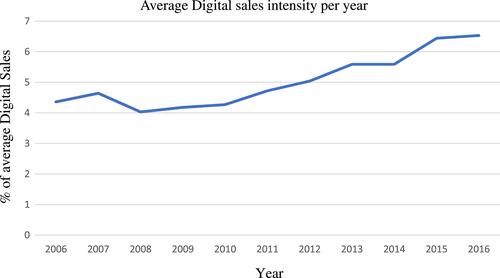Digital sales channels and the relationship between product and international diversification: Evidence from going digital retail MNEs
Abstract
Research Summary
We argue that in the era of e-commerce, retail firms can simultaneously grow their product and international portfolio by adopting a multichannel strategy, that is, using digital and physical channels. Drawing on the resource bundling perspective, we argue that the previously advocated negative relationship between product and international diversification is mitigated by the retail firm's digital sales intensity. By separately examining product and international diversification across digital and physical channels, we find that while increased product diversification in physical channels relates negatively with international diversification in both physical and digital channels, increased product diversification in digital channels relates positively with international diversification in both channels. Our hypotheses are tested against a sample of 122 born physical - going digital retail MNEs over the period 2006–2016.
Managerial Summary
The decision on how firm resources should be allocated for growing a firm's product and international scope has been a continuing debate in corporate strategy. While our research supports the conventional wisdom that product portfolio growth relates negatively to international market growth, we show that firms which increase their digital sales are able to mitigate the costs associated with this relationship. Based on longitudinal data of some of the world's largest retail MNEs, our research shows that retail firms with increased digital sales activity are more capable of mutually benefiting from simultaneously growing their product portfolio and international market presence. Therefore, if a retail firm aims at simultaneously growing its product portfolio and international market presence, it is advisable that they increase their proportion of digital sales (i.e., e-commerce activity).


 求助内容:
求助内容: 应助结果提醒方式:
应助结果提醒方式:


